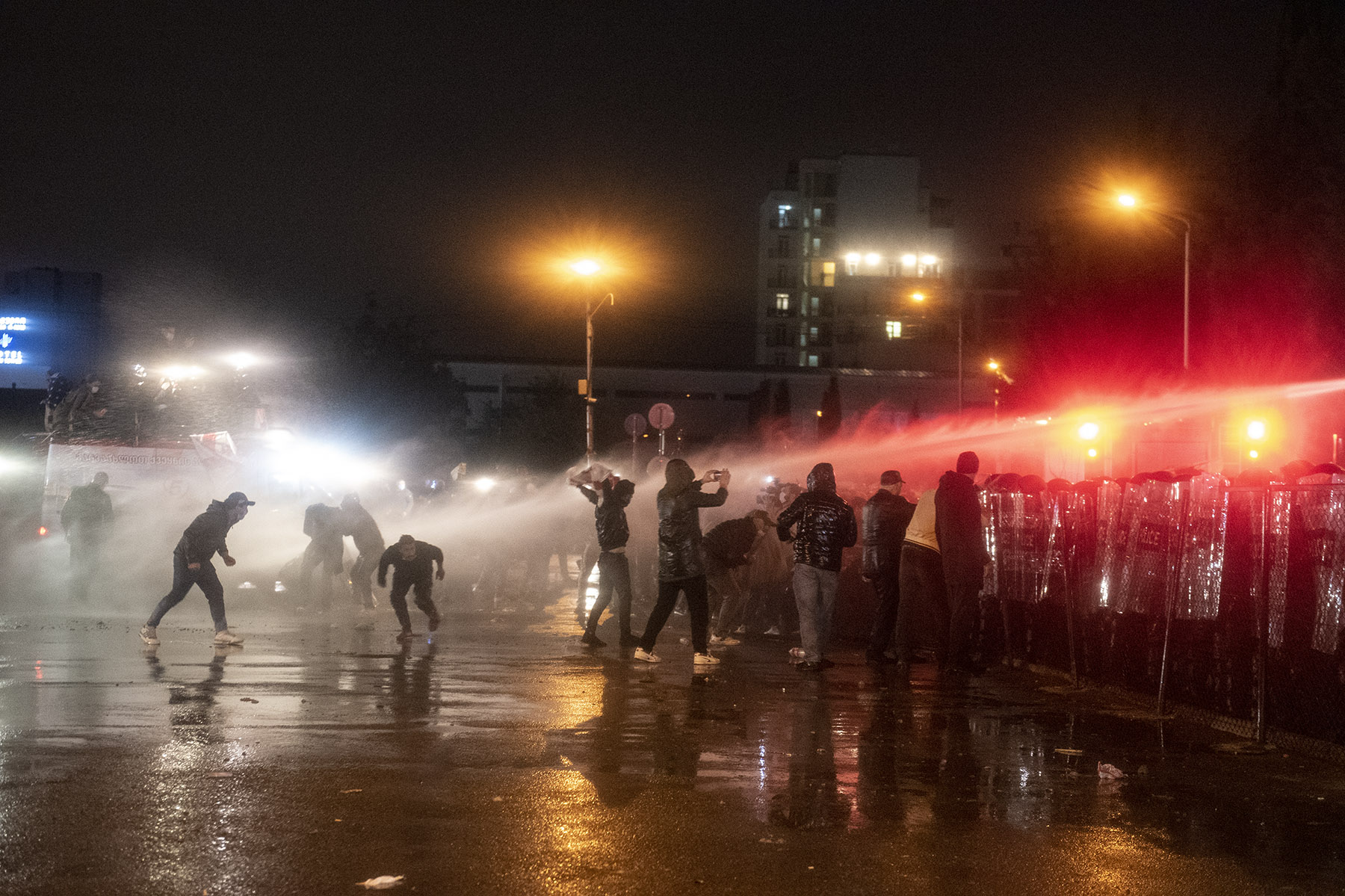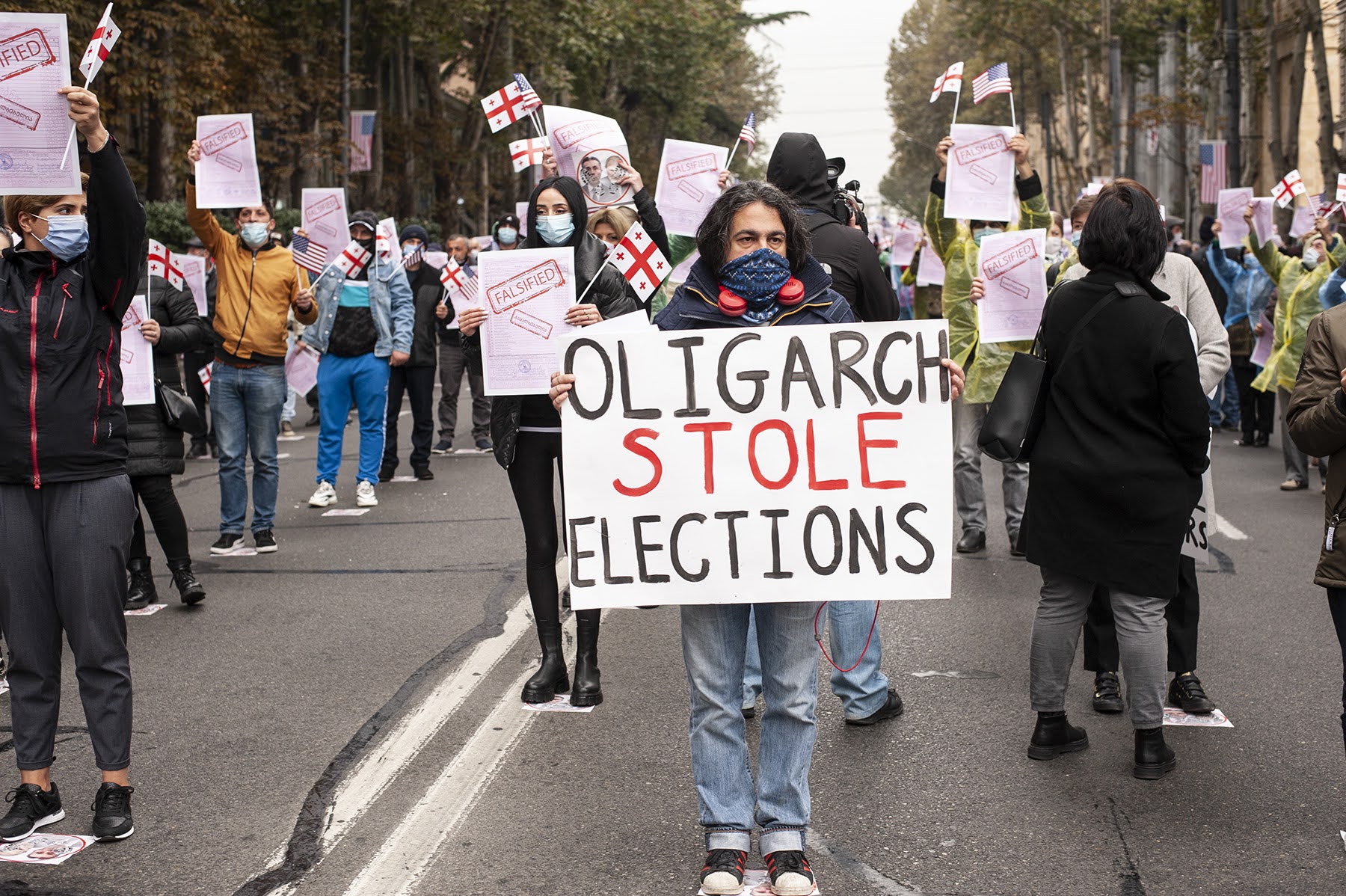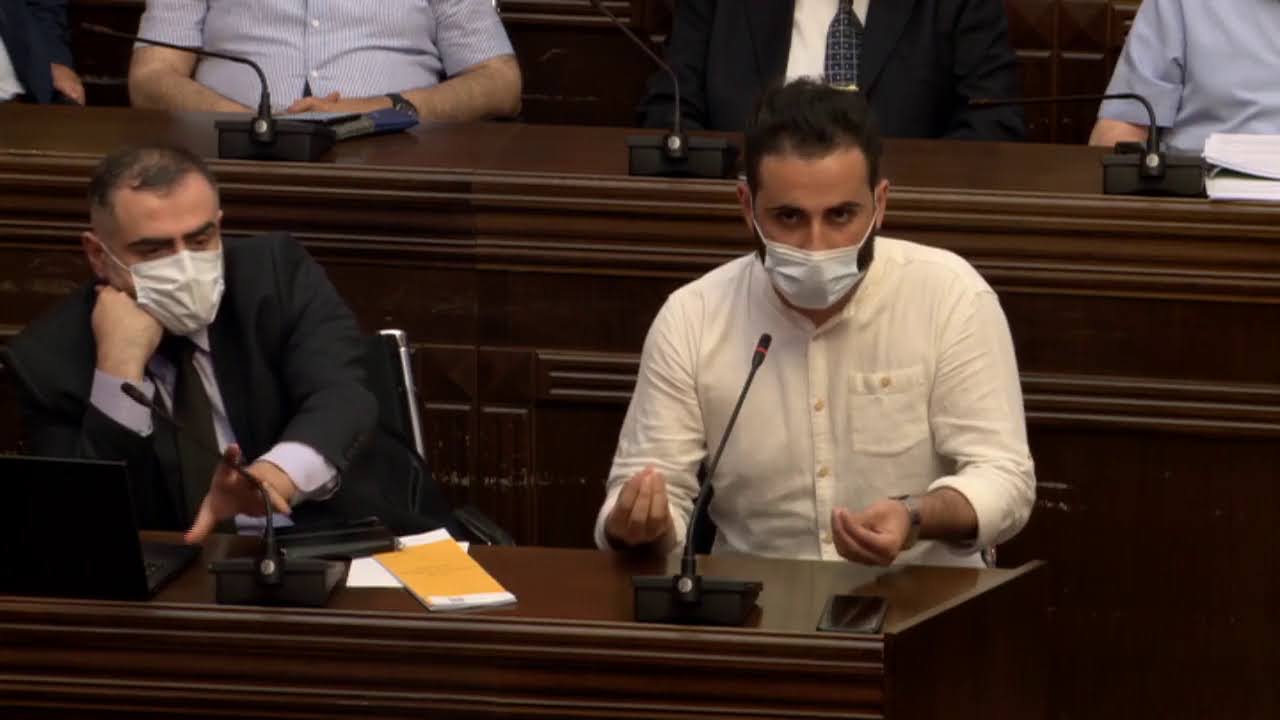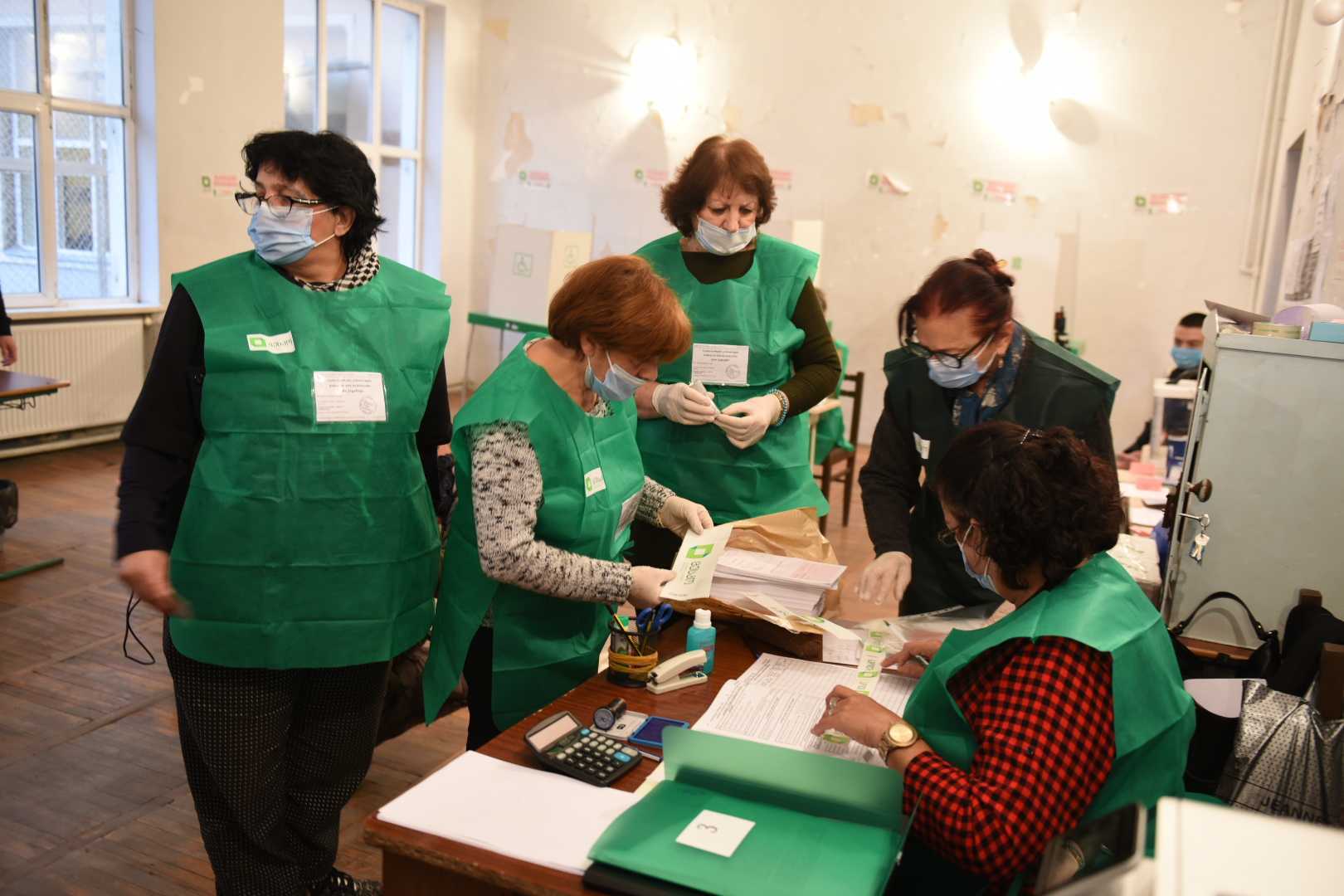

A dispute over electoral reforms is heating up in Georgia ahead of crucial local elections, the result of which will determine if snap parliamentary elections follow in 2022.
Staffing of the Election Administration, including the Central Election Commission’s controversial head, have been front and centre of the dispute, with other issues including penalties for parties not taking up their seats in parliament also causing a continued rift between the government and opposition.
Electoral reforms were a part of an EU-brokered agreement in April to end the political impasse between the government and opposition parties. As part of the agreement, Georgian Dream also committed to calling the early parliamentary elections if they won less than 43% of proportional votes.
Among the main demands of the opposition is that Tamar Zhvania, the Chair of the Central Election Commission (CEC), resign.
While this was not explicitly mentioned in the April deal, several opposition groups have insisted this is a precondition to gain public trust in the upcoming local elections slated for October.
Following the parliamentary vote last autumn, Zhvania and the CEC were accused of electoral fraud, which was followed by all opposition groups boycotting the new parliament for months.

The OSCE/ODIHR observation mission did not question the legitimacy of the final electoral outcome. Observers were, however, critical of reported cases of voter pressure, voter secrecy violation, violent incidents, and misuse of state resources. The critics also underlined that the CEC, courts, and the state investigative agencies failed to duly address disputed voter counts and violations.
Electoral changes are only a part of the dispute. With an amnesty over the protests and police response on 19–20 June as well as the government’s continued appointments of Supreme Court Judges despite judicial reform being a key part of the agreement.
[Read more on OC Media: Amnesty controversy threatens to derail EU-brokered deal in Georgia]
‘A demonstration of force’
To implement the electoral reforms promised in the agreement, Georgian Dream initially tabled a draft in March, and resubmitted it in May together with Citizens and European Socialists, opposition groups that took up their seats in parliament as early as January.
However, parliament’s electoral reform task force still lacks inclusivity as unlike smaller parties, the UNM-dominated bloc that garnered 36 seats in the 150-member parliament, have refused to sign the April deal, even after ending their parliamentary boycott in May.

While the April agreement effectively dismantled the already shaky opposition front that had earlier vowed to jointly force Georgian Dream to call the snap elections, most opposition groups remain critical of how the governing party plans to proceed with the reforms.
On 18 June, the Council of Europe’s Venice Commission and OSCE’s Office for Democratic Institutions and Human Rights (ODIHR) published a joint opinion on the election code amendment bill.
They criticised a provision in the package that would prevent a political party that boycotts parliament from having a member represented in the CEC.
Days later, Georgian Dream adopted a separate amendment that from next year will deny state funding to political parties that fail to take up at least half of their parliamentary seats.
The Georgian Labour Party, the only party whose elected members have continued to boycott parliament, claimed that they were the target of the amendments.

‘It basically means banning the party because we are about to be deprived of already very limited financing, ₾20,000 ($6,350) a month — basic to just sustain the staff of the office … This is a demonstration of force’, Mikheil Kumsishvili from the Labour Party told OC Media.
Transparent staffing of electoral commissions
According to the revised draft amendment, the CEC, the top management body of the Electoral Administration, is to be composed of 17 members including the chair, instead of the current 12, and to include at least seven non-partisan members with a maximum of nine from political parties.
The Venice Commission and ODIHR underlined the need for more robust transparency in staffing non-partisan members, a call that reflected criticism by most watchdogs and opposition groups that in recent years have described the non-partisan members as frequently lobbying for or being biased in favour of the ruling party.

Most electoral reform advocates support the idea of staffing the CEC with only non-partisan, ‘professional’ members in the future but also consider it unrealistic to do so immediately.
On 15 June, election watchdog group ISFED underlined that for the sake of transparency, the special selection committee should be obliged to justify their choices for ‘professional’ CEC membership candidacies. So far, this is not the case in the current draft reforms. Candidates are also not required to be interviewed for the job.
[Read more how party lists looked like during the last elections on OC Media: Georgia’s political parties ranked by number of women candidates]
Lingering and new challenges
The Venice Commission and ODIHR also recommended more enhanced restrictions for partisan representatives to be in the vicinity of the polling stations during the vote day, improved vote dispute and recount procedures, timely implementation of new voting technologies, and a simplified process —‘devoid of formalism’ — for any voter seeking to submit complaints to election commissions.
In the recent elections, local observers have highlighted the problems caused by a heavy presence of party activists outside polling stations, something they argue increases the risks of voter control and intimidation.
For the upcoming election, the authorities are mulling introducing some electronic voting technologies, possibly including poll pads to check in voters, electronic voting machines, and facial recognition devices.
However, so far, Georgia lacks the legal framework to regulate the application of these technologies as well as enough time before the election to widely integrate them in the voting process.






